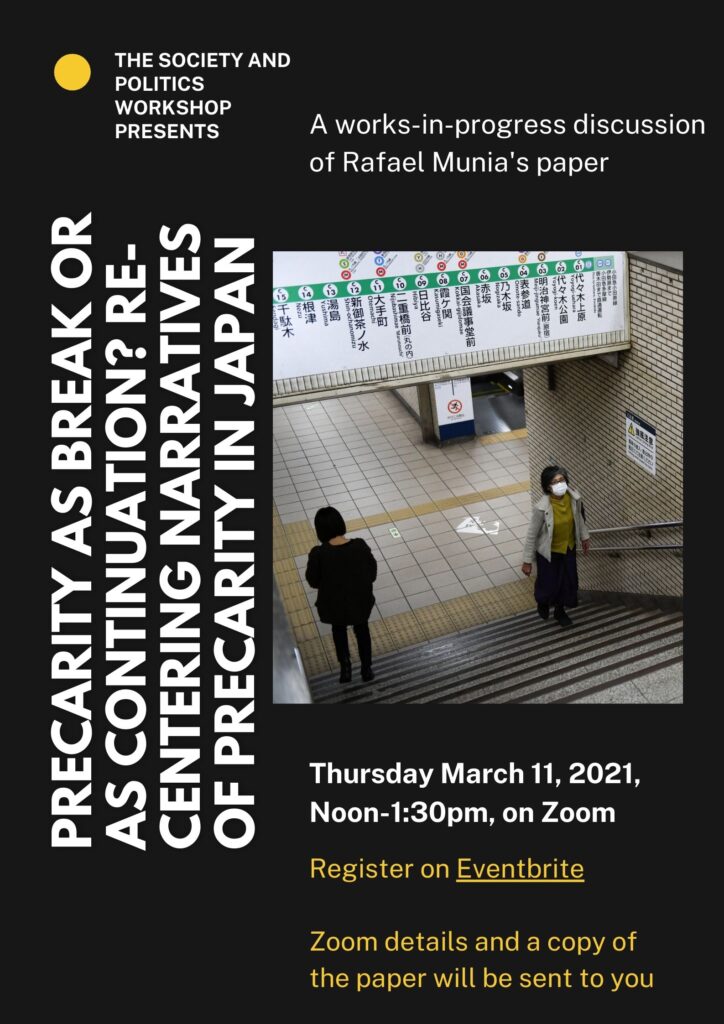by Rafael Munia
Feb 18, 2021 | 12:00- 1:30 PM
Click here to register for the event

In this works in progress discussion, we will be first examining a two-fold problem that can be identified in the literature examining precarity in Japan. On one hand, the work on precarization has produced excellent accounts of how a hegemonic masculinity centered on a rigid assemblage man-company-household is impacted by the precarization of the labor form and the increasing impossibility of establishing a household. On the other hand, we also have a long history of work centered on Japanese women that showed the many ways in which the internationally celebrated system of Japanese capitalism, with its professed life-time full-employment, universal middle-class, and single-worker nuclear families could only sustain itself on the backs of the overly precarious labor of women. These examinations demonstrate how before part-time work begun to be the norm; it was already the norm for women. This begs us to consider the following problem: If we can see how the recent wave of precarity affects male workers, and we see how female precarity existed before precarity became the new order, then how can we account for the impact of this new wave of precarity on the female population? To understand the meaning of precarity to the female population, it is important to see how the existing neoliberal order in Japan reimagines the role of women in society. Once this new context is understood, we can then understand the role of general labor precarization in the formation of a new woman subject, inquiring the opening and closures that the disintegration of the past system presents to a new generation of women.
About the Author
Rafael Munia is a third year PhD student in Anthropology at the CUNY Graduate Center. His work looks at marginalized youth in Japan and how they navigate politics of inclusion and escape. His current research project focuses on how Japanese women navigate precarity and construct notions of futurity and potentiality out of it. He received his MA from Waseda University, Tokyo.


